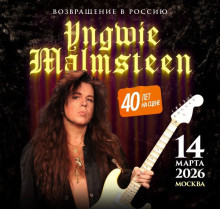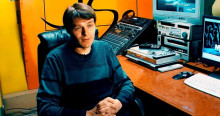История джаза знает не так много имен флейтистов, достигших мировой известности. Это прежде всего так называемые "инноваторы", такие, как Роланд Кирк и Эрик Долфи, позволившее флейте занять достойное место в джазе, и "популяризаторы", как Херби Мэнн и Хьюберт Лоус (Hubert Laws). При этом "популяризаторы", как правило, не использовали в своем творчестве саксофоны и другие "родственные" флейте инструменты, в отличие от "инноваторов"-мультиинструменталистов.
Творческий путь Лоуса начался в середине 50-х в составе легендарных теперь Jazz Crusaders (тогда еще с приставкой "джаз"). Как и многие джазовые исполнители, Лоус в качестве сайдмена переиграл за время своей карьеры с огромным числом музыкантов. Это яркие представители соул The Rascals и такие мастера, как Джордж Бенсон, Чик Кореа, Деодато, Херби Хенкок, Фредди Хаббард, Боб Джеймз, Квинси Джонс и другие. В начале своей карьеры Лоус совмещал джаз с классической музыкой, играя в симфоническом оркестре, что наложило яркий отпечаток на его дальнейшее творчество. Сольная карьера Лоуса началась на фирме Atlantic в 1964 году, где было записано 4 диска, среди которых можно особо отметить работу 1972 года - Wild Flower, записанную с большим симфоническим составом и представляющую яркий пример "третьего течения" (third stream).
В 1970 году, как и многие популярные джазовые музыканты, Лоус начинает записываться на CTI, под продюсированием Грида Тейлора, где им было записано в стилистике комбинации трех стилей (фьюжн - smooth jazz - hard bop) 8 великолепных альбомов, сделавших из него наиболее популярного джазового флейтиста нашего времени.
1970 Afro Classic 1970 Crying Song 1971 The Rite of Spring 1972 Morning Star 1973 At Carnegie Hall 1974 In the Beginning 1975 Chicago Theme 1975 The San Francisco Concert [live]
Все эти работы объединяет характерный для CTI подход. Первое - наличие поп-хитов (от Фрэнсис Лея до Битлз), популярных классических тем и произведений самого Лоуса. Второе - аранжировки Дона Себески и Боба Джеймса, как правило, для большого состава со струнными и духовыми. Третье - "звездный" состав сайдменов, таких как Рон Картер, Джордж Бенсон, Билли Кабэм и Джек ДеДжонетт. Особо отметим исполнение произведений Баха, Моцарта, Дебюсси, Фауре, Сати и Стравинского, где чувствовался "классический" опыт музыканта. Критики считают наиболее интересным двойной альбом "In the Beginning", переизданный на CD фирмой Sony.
В дальнейшем Лоус записывался на Columbia, в 80-х годах он уменьшает свою творческую активность, а в 90-х записывает ряд альбомов, последний из которых он посвящает памяти Нэт Кинг Коула. Лоус всегда исполнял удивительно добрую, мелодичную музыку, на высочайшем профессиональном уровне, являясь одним из наиболее ярких представителей не только smooth jazz, но и джазовой музыки в целом.
Hubert Laws, Jr. was born November 10, 1939, in the Studewood section of Houston, Texas, the second of eight children to Hubert Laws, Sr. and Miola Luverta Donahue.[1] Many of his siblings also entered the music industry, including saxophonist Ronnie and vocalists Eloise, Debra and Johnnie Laws. He began playing flute in high school after volunteering to substitute for the school orchestra's regular flutist. He became adept at jazz improvisation by playing in the Houston-area jazz group the Swingsters, which eventually evolved into the Modern Jazz Sextet, the Night Hawks, and The Crusaders. At age 15, was a member of the early Jazz Crusaders while in Texas (1954–1960), and he also played classical music during those years.
Winning a scholarship to New York's Juilliard School of Music in 1960, he studied music both in the classroom and with master flutist Julius Baker, and played with both the New York Metropolitan Opera Orchestra (member) and the New York Philharmonic Orchestra, 1969-72. In this period his renditions of classical compositions by Gabriel Fauré, Stravinsky, Debussy, and Bach on the 1971 CTI recording Rite of Spring—with a string section and such jazz stalwarts as Airto Moreira, Jack DeJohnette, Bob James, and Ron Carter—earned him an audience of classical music aficionados. He would return to this genre in 1976 with a recording of Tchaikovsky's Romeo and Juliet.
While at Juillard, Laws played flute during the evenings with several acts, including Mongo Santamaría, 1963–67 and in 1964 began recording as a bandleader for the Atlantic label, and he released the albums The Laws of Jazz, Flute By-Laws, and Laws Cause. He guested on albums by Ashford and Simpson, Chet Baker, and George Benson. He also recorded with younger brother Ronnie Laws album The Laws in the early 1970s. He also played flute on Gil Scott-Heron's 1971 album Pieces of a Man, which featured the jazz poem "The Revolution Will Not Be Televised." During the 1970s he was a member of the New York Jazz Quartet. He can also be heard playing tenor saxophone on some records from the Seventies.
In the 1990s Laws resumed his career, playing on the 1991 Spirituals in Concert recording by opera singers Kathleen Battle and Jessye Norman. His albums on the Music Masters label—My Time Will Come in 1990 and, more particularly, Storm Then Calm in 1994—are regarded by critics as a return to the form he exhibited on his early 1970s albums. He also recorded a tribute album to jazz pianist and pop-music vocalist Nat King Cole, Hubert Laws Remembers the Unforgettable Nat King Cole, which received critical accolades. Among the many artists he has played and recorded with are Herbie Hancock, McCoy Tyner, Nancy Wilson, Quincy Jones, Paul McCartney, Paul Simon, Aretha Franklin, Ella Fitzgerald, Sarah Vaughn, Lena Horne, Leonard Bernstein, James Moody, Jaco Pastorius, Sérgio Mendes, Bob James, Carly Simon, George Benson, Clark Terry, Stevie Wonder, J. J. Johnson, and The Rascals. In 1998, Laws recorded with Morcheeba for the Red Hot Organization's compilation album Red Hot + Rhapsody, a tribute to George Gershwin, which raised money for various charities devoted to increasing AIDS awareness and fighting the disease.
The 2006 video Hubert Laws Live 30-year Video Retrospective, available only at hubertlaws.com, includes "Red Hot & Cool" with Nancy Wilson, Performance in Brazil, Johnny Carson Show Appearance, The 1975 Downbeat Reader's Poll Awards, Performance in Japan, and Performance in Germany.Hubert Laws (born November 10, 1939) is an American flutist and saxophonist with a 40+ year career in jazz, classical, and other music genres. Alongside Herbie Mann, Laws is probably the most recognized and respected jazz flutist. Laws is one of the few classical artists who has also mastered jazz, pop, and rhythm-and-blues genres, moving effortlessly from one repertory to another.

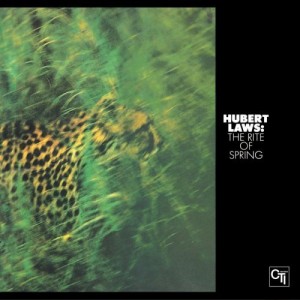
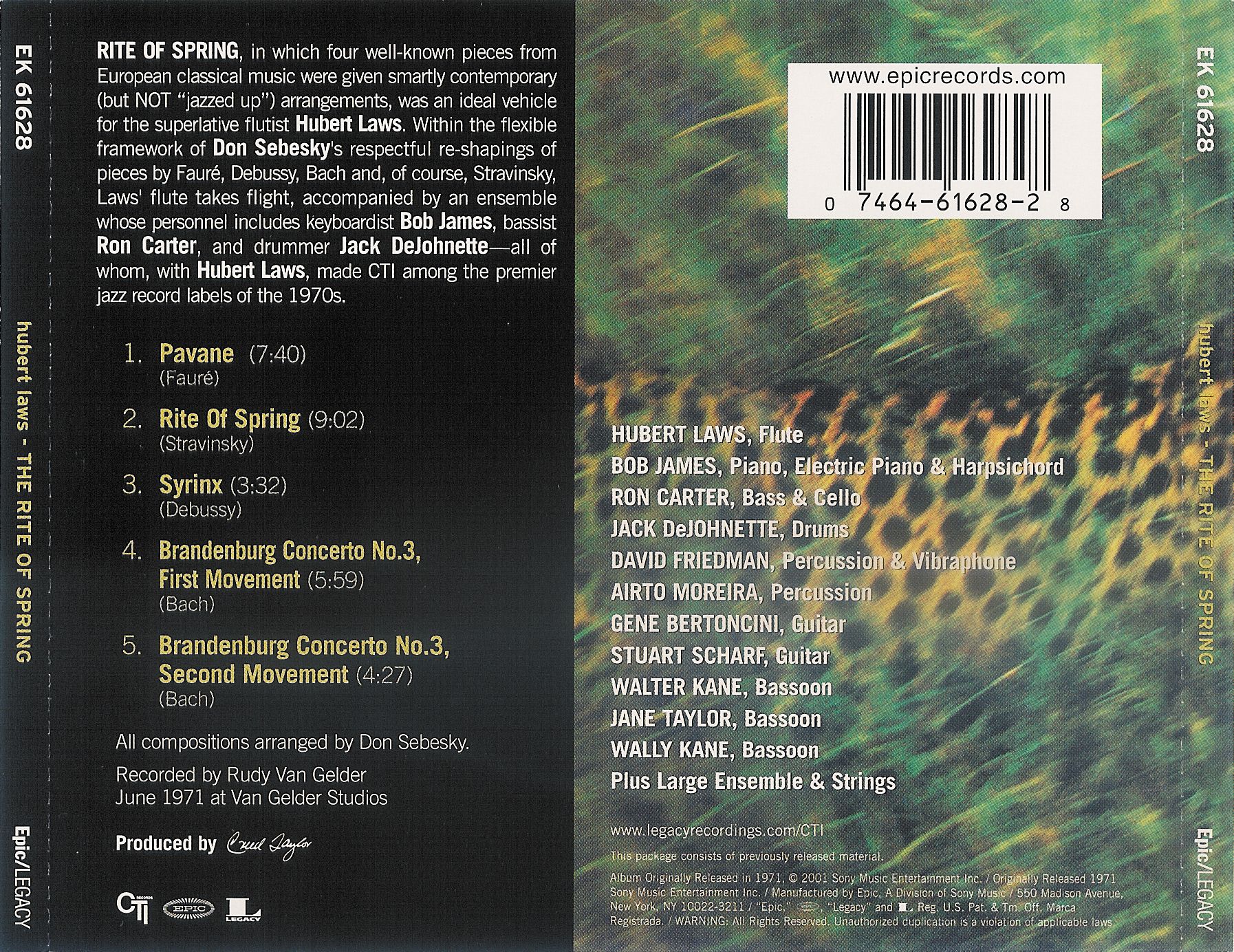
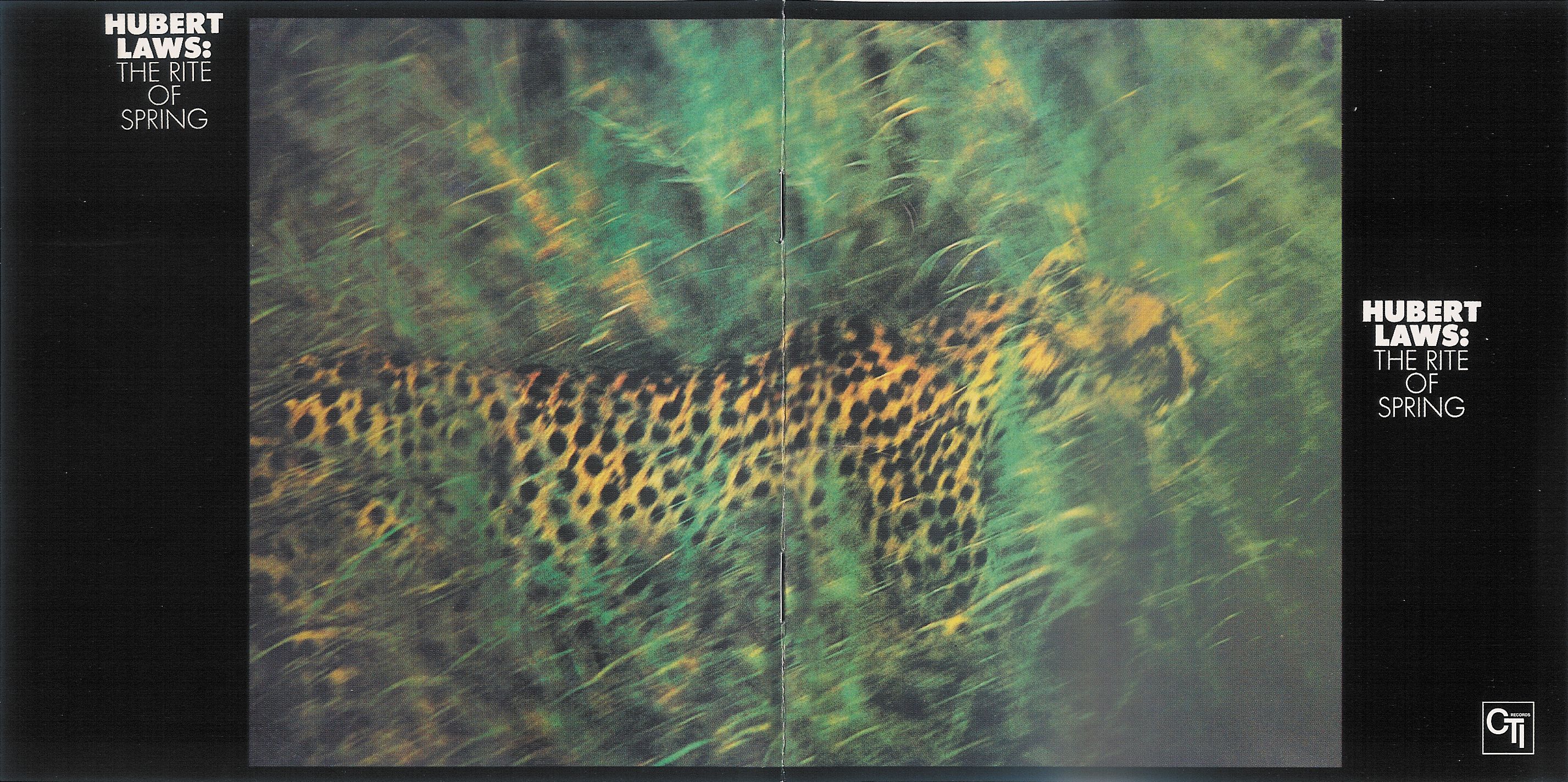
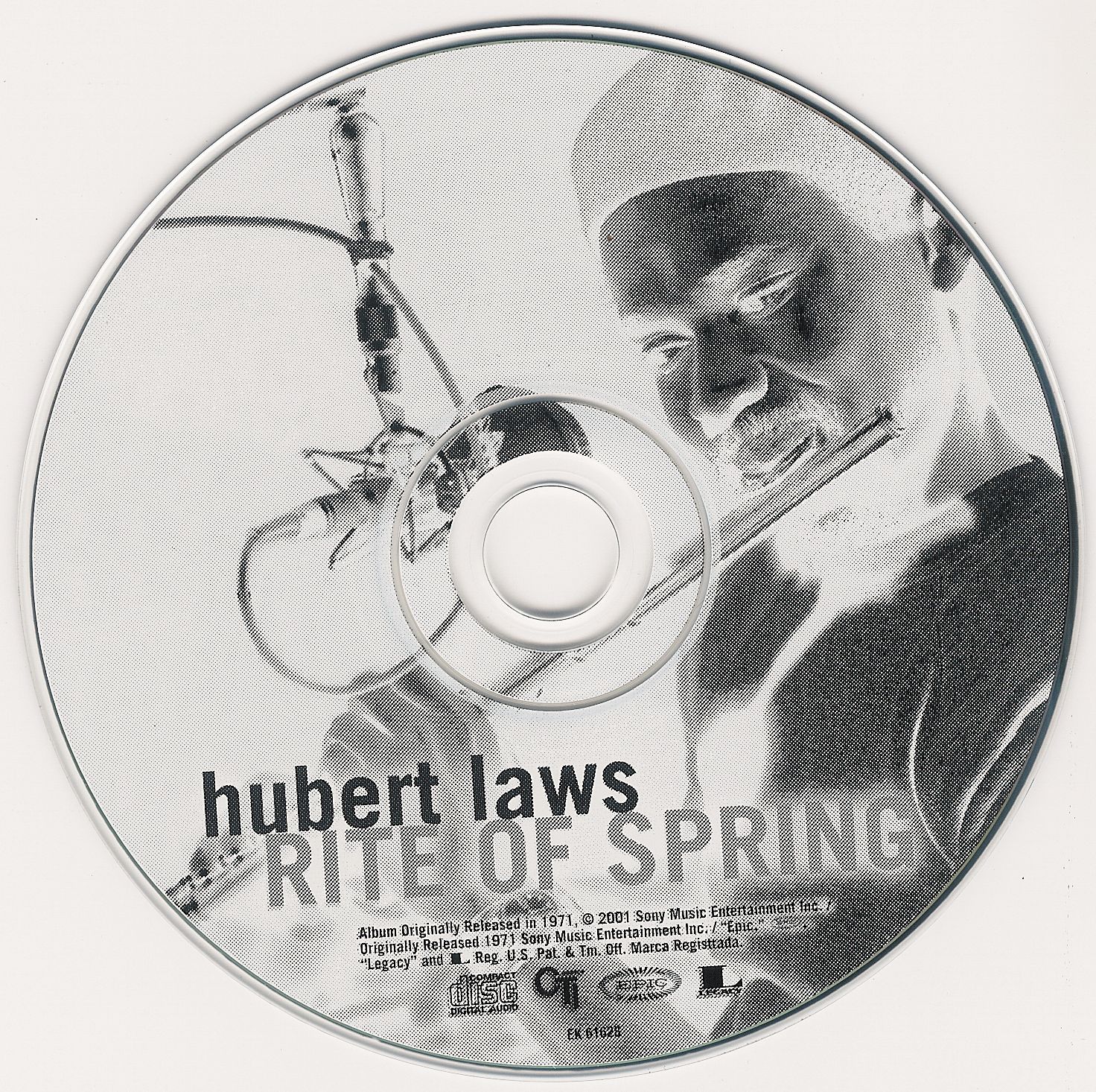
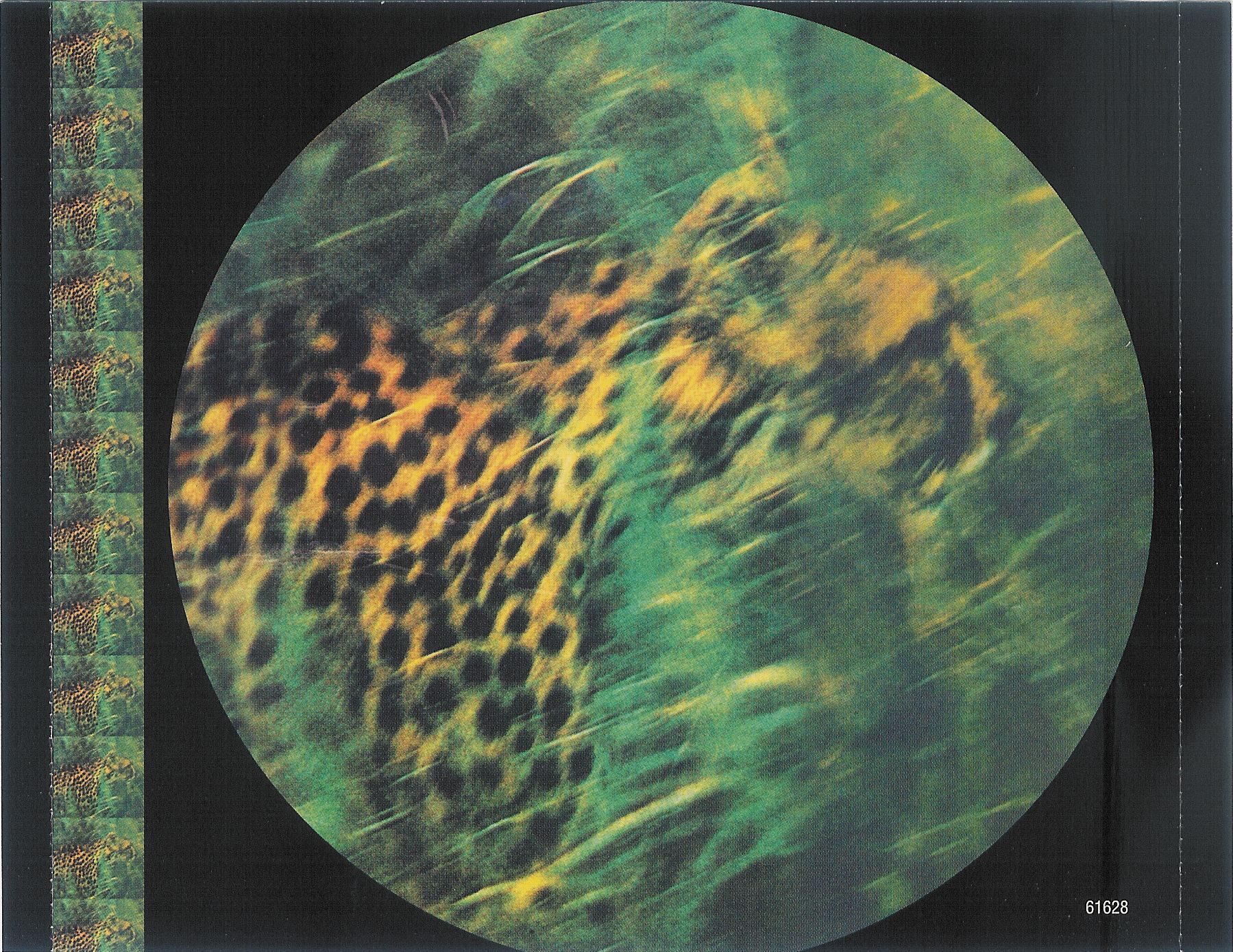
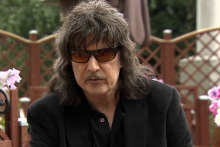
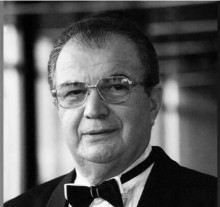
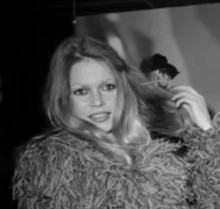
___keepration_220x220.jpg)

